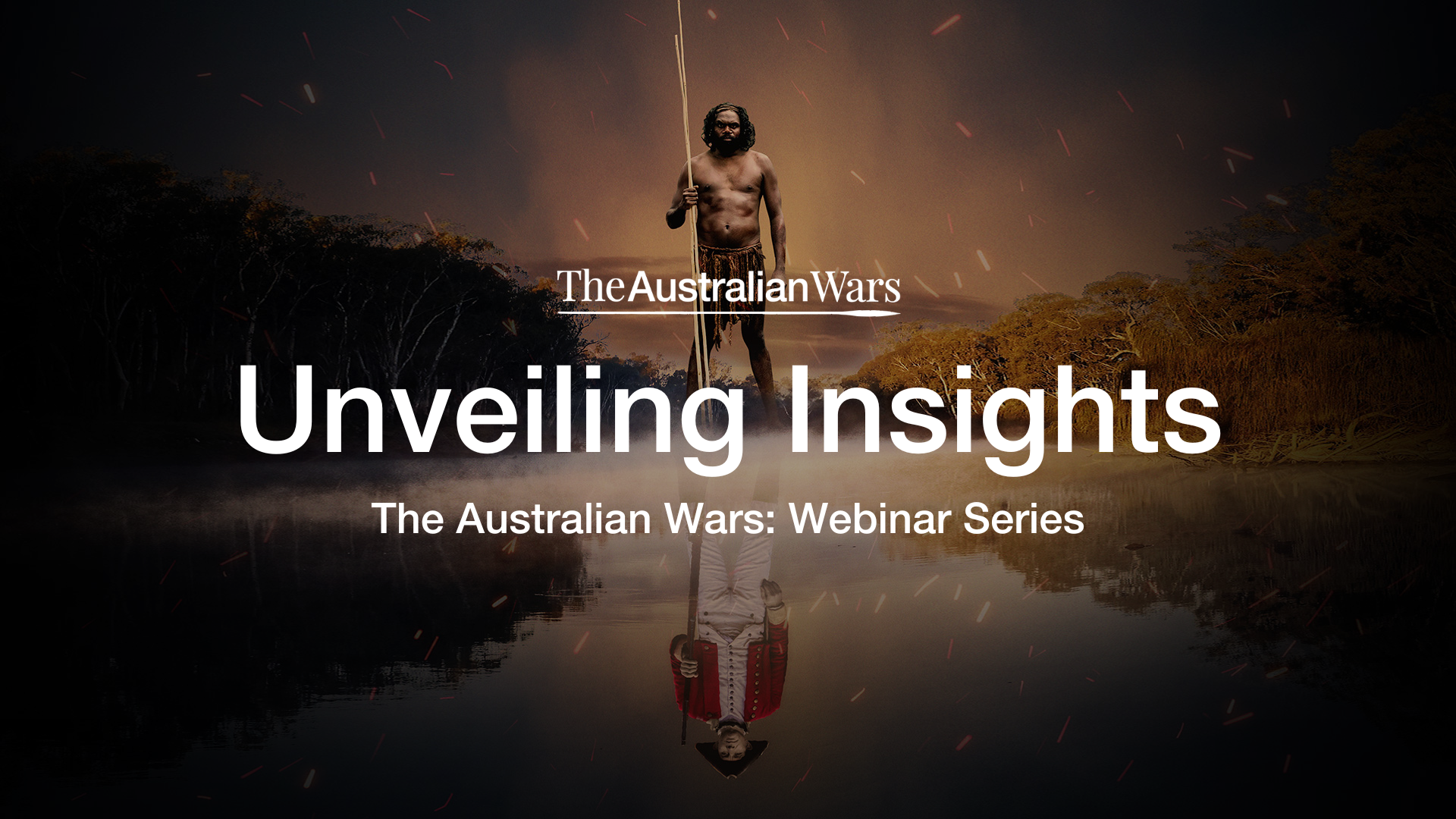
“If there’s one message throughout The Australian Wars, it’s that silence is the biggest form of injustice. So it’s really important for us and teachers, non-Aboriginal educators, to really give it a go. And to be curious and always learning, and I think we have that responsibility.” Adam Brodie-McKenzie
Culture is Life hosted a three part webinar series designed for educators to deepen their knowledge and competence in teaching First Nations perspectives in our shared history, particularly Frontier Wars history in the The Australian Wars Curriculum.
The series guest speakers included the young First Nations perspectives of Culture is Life’s Fullaship alumni including Manny Williams, Leyla Quartermaine and Bek Lasky. One of the series’ historians, Dr Chris Owen, shared his experience as a teacher, and how the lack of Aboriginal perspectives in the curriculum led him to his PHD on Western Australian, particularly the Kimberley and Pilbara region’s Frontier War history. Adam Brodie-MacKenzie shared some insightful insights as an experienced history teacher, who has also led professional development for history teachers and his insights into why teaching this history is important and teachers’ reluctance.
Part 1 focused on ‘Recognition, with conversations around recognising our place, history and responsibility. Encouraging teachers to look locally first, connect with the Country and history that staff and students learn on and building relationships with the school’s local Aboriginal community.
“Knowing that most students have never heard this content before and I am prioritising truth telling to inform students, allowing them to be curious, ask questions, be passionate and respectful to learning more in the years to come. We are all life long learners.” – Teacher
“…my biggest barrier is not having great community connections and this can hinder my ability to connect with some students. I believe learning about culture and country is extremely important and attempt to build connections with students by learning about our local area.” – Teacher
‘Resistance’ was the theme of the second webinar, where Noongar guest speaker, Culture is Life Ambassador & Koorie Youth Council Deputy Executive, Leyla Quartermaine, shared her lived experience as a young First Nations woman.
“My existence is because of the resistance of my old people.” – Leyla Quartermaine
Teachers expressed the need for further professional development and cultural training in their schools, with one teacher sharing what they feel they need more of is “Inspiring reluctant teachers to be truth tellers and gain cultural awareness and confidence to teach this content. Money to take students out or bring Elders in.”
Adam spoke from his experience as a non-Indigenous educator working in the classroom and department for many years, sharing reflections on teaching history, teachers’ reluctance and being anti-racists.
“There’s just a reluctance to teach First Nations histories and cultures, and it doesn’t necessarily come from a bad place. What became really clear (in our session with teachers) is that they really didn’t want to get it wrong.” – Teacher
The third webinar’s theme was ‘Remembrance.’
A core message in all of Culture is Life’s professional development for teachers is to reflect on their own ancestral journeys and experiences, and how these may influence the way that they teach, particularly cross curricular priorities of teaching First Nations cultures and histories.
“I think self education is also key to this. As most of us weren’t taught about true history it’s important to educate yourself as much as possible. Teachers need to be learners too.” – Teacher
Discussions around racism and white guilt were also discussed with powerful insights from guest speakers. From a non-Indigenous historian and researcher perspective, Dr Chris Owen responded to a question around white guilt and how he processed the dark learning of this history, stating ‘Put simply, it’s not about you.’ Expressing to non-Indigenous teachers like himself, that this is the history and that there is plenty of archival met with oral stories that are there to learn from.
The series and webinars encouraged teachers to share stories of strength and pride for students to learn about the strong Aboriginal warriors from the series, and to extend that research locally.
Manny expressed the importance of learning about local heroes as he didn’t learn about his people at school. He now knows he is from a strong Kalkadoon tribe and expressed his pride in knowing their stories of resistance gives him strength.
We asked teachers ‘What were some standout outcomes and learnings (teaching The Australian Wars Curriculum) for your students?’
“Connections with stories and living experiences.”
“Some students had conversations with their families.”
“Honest surprise – new depth of respect for First Peoples.”
“Learning that the history of Australia doesn’t always have to focus on tragedy-we can find strength and resilience in these stories.”
Culture is Life is committed to extending the outreach of the series and its impact goals through future professional development for teachers, resource development and speaking and workshop opportunities, with funding secured till 2026.
Are you or your school, community organisation or workplace interested in connecting with the series outreach? Get in touch: theaustralianwars@cultureislife.org

